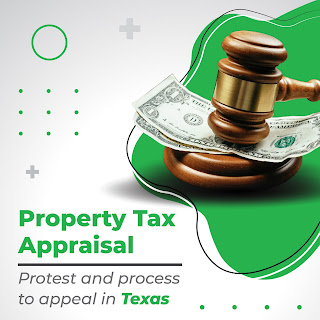How you can save money by appealing your property tax assessment
Millions of homeowners have no idea on the way to lower their property taxes. They casually glance or grimace at their mortgage escrow notice per annum and pony up without doing anything.
60% of properties are overvalued by assessors, according to the National Taxpayers Union. Having fought for fair assessments for quite a decade because the co-founder of a non-profit, taxpayer advocacy organization, most owners have no idea how the tax valuation process works.
Here are five things you can do:
Check your property description
If your assessor shows four bedrooms, and you simply have three, then you'll correct the error if they visit your property otherwise you submit building drawings. Less living space, of course, means a lower tax bill. Your property description should be accurate in terms of square footage, rooms and amenities.
Do you qualify for exemptions?
You automatically receive a homestead exemption for living in your home and not renting it out. Exemptions also are available for seniors, veterans and therefore the disabled. To seek out if you qualify, check your assessor's website or call them.
Are you overassessed
The simplest rule of thumb for an appeal is that the assessor's market estimate of your home is more than you think you can sell it for. This is often a fuzzy estimate, but if you think that you're overassessed, you'll always appeal.
You can get a range of what your property's worth by contacting a local real estate agent. Just note that market values are often rough estimates. The important value of your house is what someone is willing to buy it at closing.
Assessors offer you a window of a minimum of 30 days to appeal your assessment notice. But you have to jump on the appeal process within that period or you have to wait another year.
You will also need to know your county's equalization factor, which is a number that is used to multiply your assessed value. This number indicates market conditions and other factors.
Unfortunately, you can't challenge your final tax bill directly, although you can certainly protest it.
In most cases, you will prove your assessment appeal case with three lower-assessed properties of comparable square footage and features. You would like apples-to- apples comparisons, but you will likely need to undergo your county's tax appeal process.
Your property has some special issues
Let's say a natural disaster hit your neighborhood and a tree fell on your house or there's other damage you haven't been able to repair.
You can note these circumstances and ask for a lower assessment.
You transacted a recent sale and have a current appraisal
If a professional appraiser says your house is worth less than its assessed value, that's usually pretty solid evidence.
You can also obtain a new appraisal, but it will cost you many hundred dollars. If the appraisal makes your case for a lower assessment, then it might be worthwhile .
Keep in mind that you are not directly appealing your bill . By the time you get that, you cannot really do much of anything. Tax rates are set by local bodies like school districts, villages and other agencies. Unless they lower their rates, there's not much you can do.
In any case, it is always sensible to appeal. The assessment process will not be the same always. It's up to you to challenge it if it's unfair.




Comments
Post a Comment